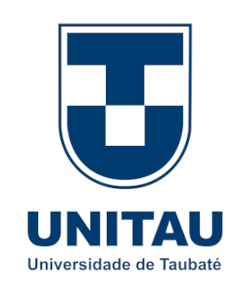FORMATION OF HOMOGENEOUS TEAMS USING GENETIC ALGORITHM
Keywords:
Homogeneous team, Genetic Algorithm, Optimization, Individual SkillsAbstract
Working in a team is one of the main activities that mankind has been doing for a long time. In recent years the literature has given a special care to the topic of team formation, much is discussed about this, but there is still a great difficulty in forming a homogeneous team, to optimize productivity. Based on this context, a genetic algorithm (GA) capable of dividing and optimizing individuals into teams was developed based on their individual abilities. The tests performed in different configurations were very promising, in some cases there was an optimization of approximately 95% in relation to the first generation.
Downloads
Metrics
References
BEJARANO, V. C.; PILATTI, L. A.; LIMA, I. A. Equipes de Alta Performance. Revista Tecnologia e Humanismo. Curitiba. Vol.19, n. 29 (2005), p. 23-34.
BLANCHARD, K. The one minute manager builds high performance teams. Bostom: Quill, 2000.
DRUCKER, P. Administrando em tempos de grandes mudanças. São Paulo: Pioneira/Thomsom Learning, 2001, p. 59-62.
HOLLAND, J. H. Adaptation in natural and artificial Systems. Ann Arbor, MI: University of Michigan Press, 1975.
HOLLAND, J. H. Adaptation in natural and artificial systems: an introductory analysis with applications to biology, control, and artificial intelligence. Cambridge, MA, USA: MIT Press, 1992.
HOLLAND, J. H.; GOLDBERG, D. E. Genetic algorithms in search, optimization, and machine learning. Massachusetts: Addison-Wesley, 1989.
KATZENBACH, J. R.; SMITH, D. K. Equipes de alta performance: conceitos, princípios e técnicas para potencializar o desempenho das equipes. Rio de Janeiro: Campus, 2001.
LARSON, C. E.; LARSON, C.; LAFASTO, F. M. J. Teamwork: what must go right/what can go wrong. Sage, 1989.
SILVA, Y. K. N. A utilização de Algoritmos Genéticos para a formação de equipes heterogêneas em turmas universitárias. Caicó, 2017.
SILVEIRA, S. R. Formação de grupos colaborativos em cursos a distância via web: um estudo de caso utilizando técnicas de Inteligência Artificial. Revista brasileira de informática na educação. Florianópolis. Vol. 14, n. 2 (maio-ago. 2006), p.29-40.
SIVANANDAM, S. N.; DEEPA, S. N. Genetic algorithms. In: Introduction to genetic algorithms. Springer, Berlin, Heidelberg, 2008. p. 15-50.
STRNAD, D.; GUID, N. A fuzzy-genetic decision support system for project team formation. Applied Soft Computing, v.10, n. 4, p. 1178-1187, 2010.
WALT, S. V. D.; COLBERT, S. C.; VAROQUAUX, G. The NumPy array: a structure for efficient numerical computation. Computing in Science & Engineering, v. 13, n. 2, p. 22-30, 2011.
PYTHON,ORG. Welcome to Python.org. Disponível em: https://www.python.org/. WI, H. et al. A team formation model based on knowledge and collaboration. Expert Systems with Applications, v. 36, n. 5, p. 9121-9134, 2009.
Downloads
Published
How to Cite
Issue
Section
License

This work is licensed under a Creative Commons Attribution-NonCommercial-NoDerivatives 4.0 International License.
A submissão de originais para este periódico implica na transferência, pelos autores, dos direitos de publicação impressa e digital. Os direitos autorais para os artigos publicados são do autor, com direitos do periódico sobre a primeira publicação. Os autores somente poderão utilizar os mesmos resultados em outras publicações indicando claramente este periódico como o meio da publicação original.




